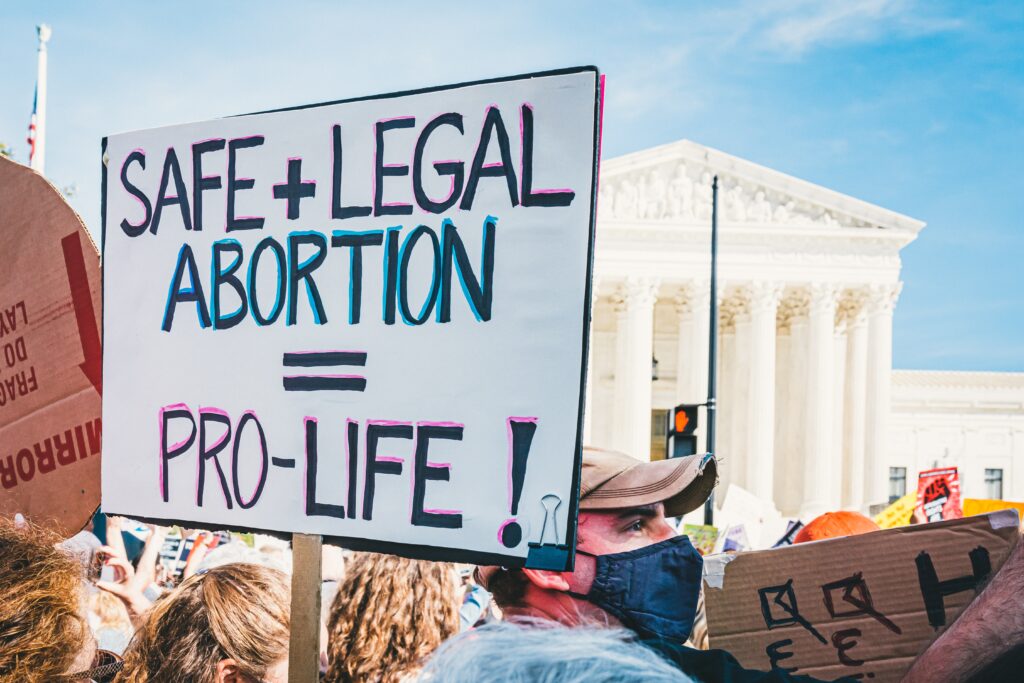The State of Things: Abortion Laws in Poland and Ireland

Photo by Gayatri Malhotra for Unsplash
In light of International Women’s day, we at the Activism Academy aim to highlight the many achievements of women. However, it is equally vital to highlight the struggles women face today. A glaring issue is that of abortion. The World Health Organisation (WHO) convention states that health is a fundamental right of every human being. Quality health care includes access to comprehensive abortion care services. Yet, some countries do not share these values. In Poland and Ireland, the lack of essential health care is evident in their treatment of women.
Between the two countries, the most pressing issues in this regard are in Poland. The abortion question in the country began gaining more and more traction in 2021, as a near-total abortion ban was introduced on the 28th of January 2021. The ban means that abortion only is allowed in cases of rape, incest or when the pregnancy threatens the life of the mother. Unfortunately, the threats to the lives of mothers are at times underestimated and misassessed, leading to deaths.
Poland is ranked as the worst in Europe for contraceptive policies according to the European Parliamentary Forum for Sexual and Reproductive Rights. This is evident in the numbers, as 200,000 women have abortions illegally or travel abroad for abortions every year. Doctors involved in abortions are also at risk of harsh sanctions. If abortion is not deemed as justified by a prosecutor, doctors face up to 3 years in prison. The law is increasingly leading to life-saving decisions being delayed or rejected.
On the 8th of November 2021, substantial protests were organized after the death of a 30-year-old woman who died at 22 weeks pregnant. The mother died from sepsis after she experienced complications in her pregnancy. Her family stated that life-saving healthcare was delayed as the doctors feared breaking Poland’s increasingly restrictive abortion laws. The lawyer in the case said doctors were aware of foetal defects but delayed the procedure as they could detect a heartbeat. In Poland, the law states that if a mother’s life and/or health is at risk she qualifies for an abortion. There is a clear disconnect between Poland’s Catholic influenced and nationalistic government and the medical staff dealing with these decisions every day. Yet, the government states that doctors should not be afraid of making clear choices.
The abortion ban and its fatal consequences are continuing to harm women. In February 2022, two women died after being refused necessary abortions. One woman is known as Agnieszka T. Her case incited public debate as doctors delayed aborting a twin foetus that died in utero. The family are again blaming the restrictive laws for ending the lives of several women in Poland. In Polish parliament, a bill is being detabed on whether or not women who obtain an abortion ‘illegally’ could face up to 25 years in prison. Most proponents of prison sentences for women who have an ‘illegal abortion’ are allegedly directly and indirectly supported by the Catholic Church. This debate has led to the unification and increase in the size of groups protesting these lethal abortion laws. More than 1000 Polish women have sent applications to the European Court of Human Rights (ECHR) to try cases in Poland and state that laws in Poland is violating their rights to freedom from torture. Another consequence of what is happening in Poland is a decrease in trust in the Catholic Church. The Catholic Church is seen to lose moral authority when they partner with political parties.
A similar situation was seen in Ireland up until recently. In Ireland, abortion was a crime in which those who obtained one, faced life imprisonment under the Offences Against the Person Act 1861. The first changes could be seen in the 1983 referendum. This resulted in Article 40.3.3 with which the State recognised the right to life of the unborn child and due regard to the equal right to life of the mother. The case that led to this referendum was that of Sheila Hodgers, whose cancer treatment was stopped to protect her baby, both she and the baby died. In 1991, the European Court of Justice (ECJ) rules ‘SPUC V Grogan’ that abortion constitutes service under the Treaty of Rome and the distribution of information by agencies could not be prohibited. In the 1992 ‘X’ case, the issue of travelling for abortion was considered, three amendments were discussed. Both the freedom to travel outside the state for abortion and the freedom to obtain information on abortion services outside the state were passed. To remove suicide as grounds for abortion was rejected.
Changes slowly progressed and could be seen in the 1997 case in which a 13-year-old girl was raped and impregnated, the courts ruled that she was entitled to an abortion in Ireland. One of the most notable cases is that of Savita Halappanavar, who died in Galway University Hospital in October 2012. Savita was denied an abortion during miscarriage because a foetal heartbeat was detectable. Once again doctors were afraid to decide due to Ireland’s strict abortion laws. In July 2013 after much uproar, President Michael D. Higgins signed the Protection of Life During Pregnancy Act into law. The Act was intended to provide for lawful access to abortion where a pregnant woman’s life is at risk.
Over the following years, increased pressure was placed on Ireland by the ECHR to reevaluate their inhumane abortion laws that were causing harm to many women in Ireland. The most significant year for change was 2018 when the abortion referendum took place, in which Ireland voted to “Repeal the 8th” by a landslide vote of 66%. The Health (Regulation of Termination of Pregnancy) Act 2018 was signed into law by President Michael D Higgins on the 20th of December. This provided the legislative framework for the provision of abortion care in defined circumstances. As long as a 3-day waiting period has elapsed, abortion care is lawful on request up to 12 weeks of pregnancy.
These changes happened in a relatively condensed time period and Ireland in many facets has shown a willingness to change. Yet, more needs to be done. Women are still travelling to the UK for abortions due to limitations in the time period of the law. Only 10 out of the 19 maternity hospitals in Ireland provide abortion services, resultingin a lack of support and facilities for Irish women. The lack of capacity shows why the 12-week limit may result in women having to go abroad for abortions or if not forcing them to carry out a pregnancy that could be a risk to both their mental and physical health.
For international women’s day let’s rally towards change. Here are some useful links you can use to support those in Poland, here is an open letter to show your solidarity with women in Poland, this petition by change.org which wants to give Polish women a choice. Share these petitions and articles like this, with people you know to highlight what is happening in Poland.
Small steps lead to big changes.
#InternationalWomensDay
